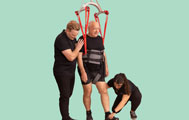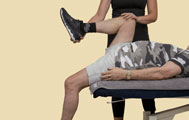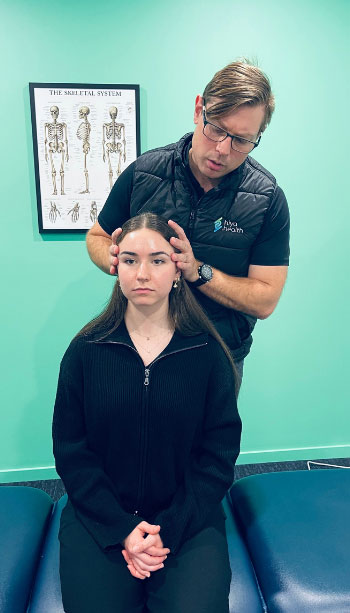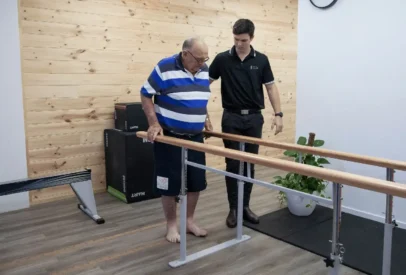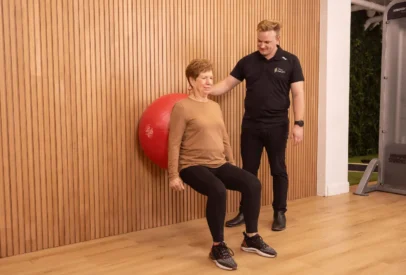Do I need an Exercise Physiologist or Physiotherapist?
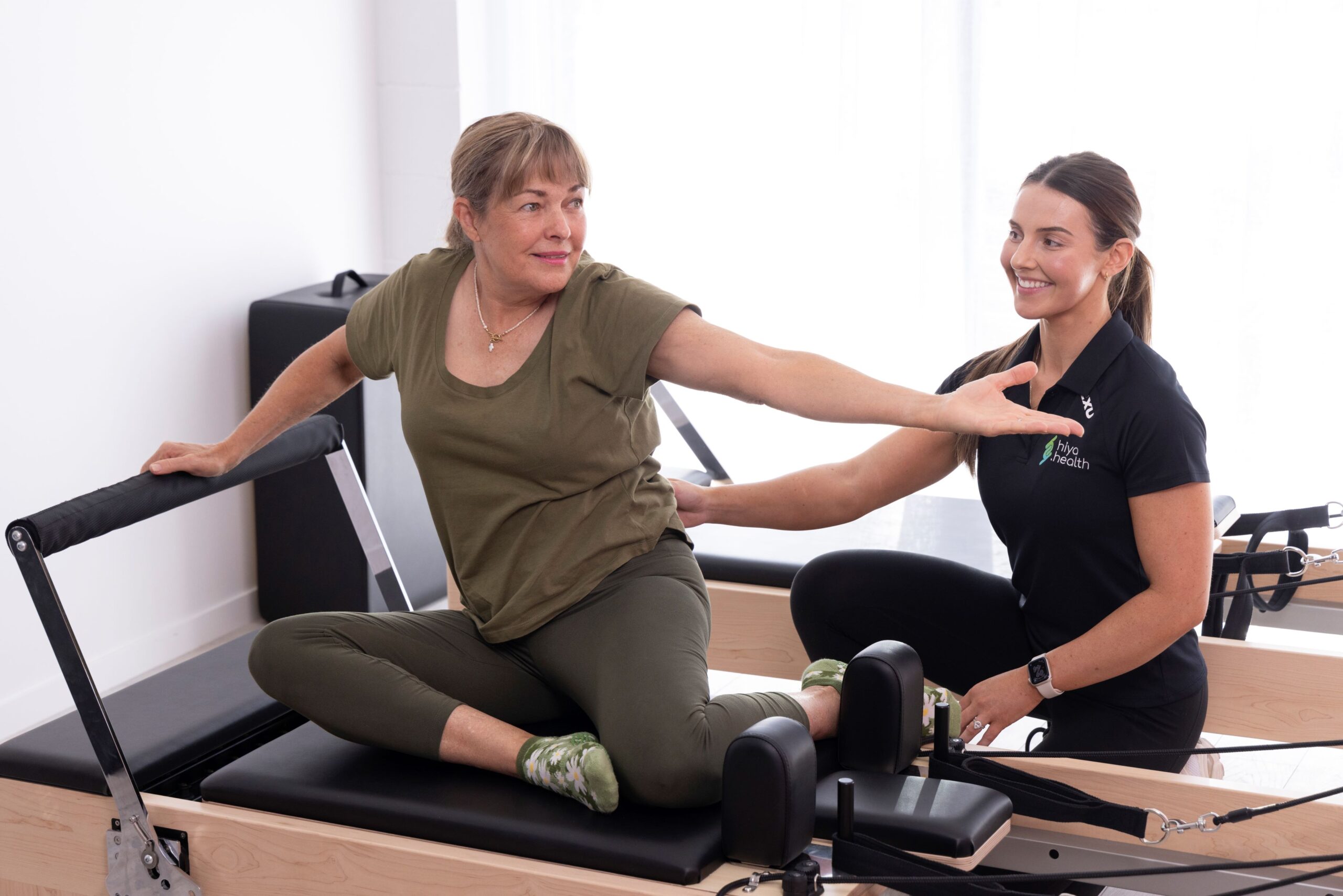
Physiotherapy or Exercise Physiology: Which Is Right for You?
At Hiya Health, we offer a range of Allied Health Services – from Physiotherapy and Occupational Therapy, through to Exercise Physiology and Dietetics. Understanding the difference between physiotherapist or exercise physiologists can help you choose the right care for your recovery, rehabilitation, or fitness goals. We outline the key differences in the article below.
What is the difference between Physiotherapy and Exercise Physiology?
When it comes to choosing between exercise physiology and physiotherapy, many of us get confused. Whilst both allied health professionals work across a wide variety of client groups, there are some differences between the two that are helpful to know when deciding who to see. Both treat a broad variety of conditions, but their expertise does differ in particular areas:
What do Physiotherapists do?
Physiotherapists provide assessment and diagnosis of injuries and use both hands-on therapy and exercise interventions to help you manage your injury, pain or disability.
To be a Physiotherapist in Australia, practitioners have typically completed 4 years undergraduate study in order to complete a Bachelors Degree in Physiotherapy. To maintain their accreditation, physios need to complete ongoing professional development every year.
Physiotherapists are your first line of treatment if you have recently been injured, are suffering from acute pain or limited movement. They will conduct a thorough assessment and are able to diagnose your injury. Physiotherapists are also well equipped to assess and manage complex neurological conditions to improve independence and function across a variety of conditions. Additionally, they have the skills and knowledge to work with our paediatric population to conduct paediatric milestone testing and ensure our kids are meeting these important development markers and assist in developing these skills if needed.
What do Exercise Physiologists do?
Exercise Physiologists perform in depth clinical assessments and provide education regarding diagnosis from your GP or other specialists . They will prescribe clinical exercise programs and education, working with you to help you meet your health goals from where you are currently, regardless of how little exercise you believe you are capable of.
To be an Accredited Exercise Physiologist in Australia, practitioners must have completed 4 years undergraduate study or a Master degree in order to gain accreditation. To maintain their accreditation, they must complete a minimum of 20 hours ongoing professional development every year.
Exercise Physiologists are exercise experts and have a profound understanding of how exercise affects all parts of our bodies and which may be best suited to you and your needs. Exercise physiologists specialise in working with patients who have suffered cardiac conditions or complications, have metabolic or chronic health conditions such as diabetes, Osteoporosis, Osteoarthritis and many more. Exercise Physiologists also help people living with mental illness and experiencing mental health issues to support their journey back to good health.
When to see a Physiotherapist:
- Your injury or onset of symptoms is recent and has not yet been diagnosed.
- You are experiencing acute pain and limited movement.
- For treatment which is only delivered by Physiotherapists e.g. Dry Needling and Manual Therapy.
- For assessment and management of neurological conditions and paediatric developmental concerns.
When to see an Exercise Physiologist:
- You have an existing health condition and want support in managing it.
- You are in the recovery stage of an injury or wanting assistance with an old injury.
- You are looking for support in regards to weight management or strength and balance training.
- You are looking to make proactive changes for disease prevention and general health.
Do the treatment approaches differ between Physiotherapy and Exercise Physiology?
Exercise Physiologists deliver education with exercise therapy and exercise interventions, like cardiovascular, resistance and flexibility training to reduce disease, develop strength and improve physical function and wellbeing.
Physiotherapists have a wider range of treatment options, including exercise prescription, functional task retraining and manual therapy techniques such as joint mobilisations, dry needling, and much more.
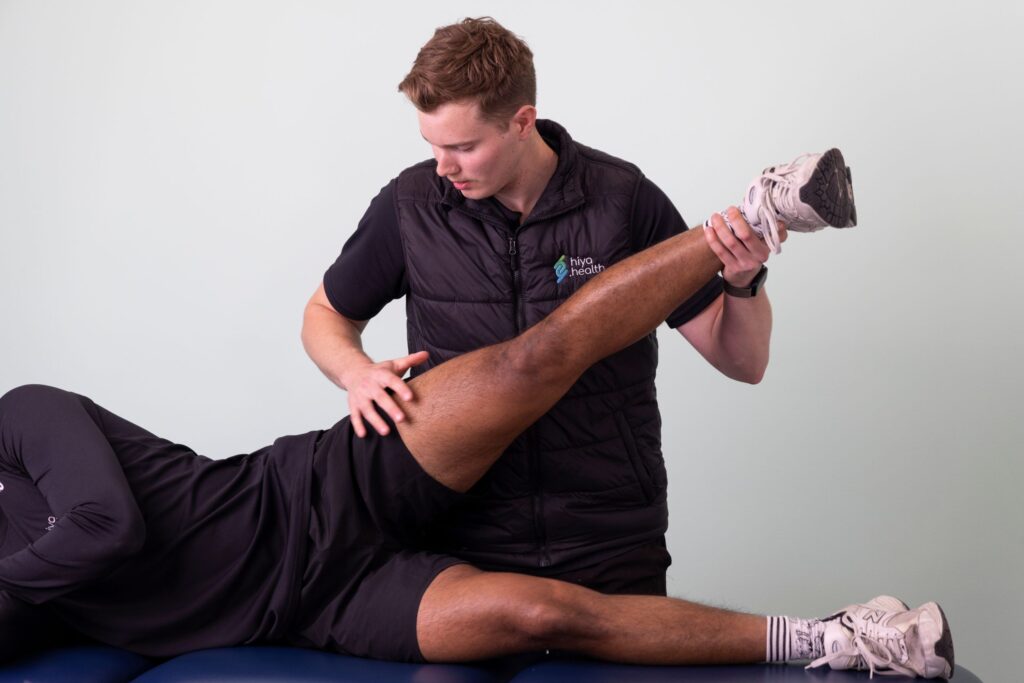
Physio or Exercise Physiologist: Does it matter which profession I see?
Initially, it does – depending on what you’re coming in for. If you have a recent injury we recommend you see a Physiotherapist before having regular sessions with an Exercise Physiologist. If you are living with a chronic condition, you may benefit from seeing an Exercise Physiologist first.
Whether it is an exercise physiologist or physiotherapist you come to see at Hiya Health, we guarantee you will first receive an in depth assessment of your current capacity and concerns. Both professions ask a series of questions to better understand your needs and capabilities, this is then followed by a tailored functional assessment to understand how you move, where your strengths and limitations lie and if anything in particular causes pain. From this point onwards both professions utilise the results of this assessment to build you a tailored intervention.
Could I see both a Physiotherapist and an Exercise Physiologist within my care plan?
Yes – because we take a multidisciplinary approach at Hiya Health, our clinicians are collaborative with your care. This means that you might see both a physiotherapist and an exercise physiologist depending on your treatment needs. Typically, you may see a physiotherapist for your first few sessions, and then be introduced to an Exercise Physiologist to continue treatment, or depending on your health needs, you might have regular appointments with both services.
Either way, our clinicians at Hiya Health would communicate between themselves on your progress and how we can best support your goals.
Ok, let’s take a look at what this might look like in real life.
Example Case: How Physiotherapists and Exercise Physiologists can work together
Gemma plays AFL most weekends. This weekend, Gemma had an injury which caused her to roll her ankle and she is experiencing pain when she is moving around, and also occasionally when she is sitting. She spoke to her GP over the phone and they gave her a referral to a Physiotherapist. Gemma chooses Hiya Health, and books an initial appointment with a Physiotherapist. She attends the first appointment where they discuss how the injury occurred and conduct a thorough assessment of her ankle. Her Physiotherapist diagnoses a grade 1 lateral ankle sprain of her ATFL, and they discuss a treatment plan to manage her symptoms with her goal of returning to playing AFL in mind. They discuss some exercises Gemma can do at home and they work through them together so she knows what to do. They agree that Gemma should book another two appointments with her physiotherapist and be referred to an Exercise Physiologist after that.
Gemma attends the appointments and they discuss the progress she has made. They talk about any concerns and work on some manual therapy including joint mobilisation activities to improve her pain and range of motion. After some progress, her Physio recommends booking an appointment with the Exercise Physiologist for the following week, so that she will see both the Physio and EP in the same week for a smooth transition of care. The Physio and Exercise Physiologist discuss Gemma’s case and they begin to work collaboratively. After her last appointment with her Physio, her Exercise Physiologist takes over her case and manages her recovery from there. She books in for four sessions with her Exercise Physiologist, where they work through some exercises which mimics how her ankle might move when she is back to playing AFL in order to strengthen the muscles around her injured ankle.
*Case details for illustrative purposes only.
Summary
Exercise Physiologists use exercise therapy to help patients towards independence in managing existing and complex health conditions and prevent the onset and progression of diseases. Exercise Physiologists work collaboratively as part of care teams to support people to improve quality of life.
Physiotherapists can diagnose injuries, and typically focus on immediate rehabilitation and pain management as a result of a new condition, injury or diagnosis. Physiotherapists are also able to work with clients with neurological conditions and paediatric clients to improve functional independence.
Take the first step towards better health – find a Physiotherapist or Exercise Physiologist today!
If you are experiencing symptoms and are in need of a physiotherapist or exercise physiologist, our team of experienced clinicians are available across our 9 clinics in South East Queensland – book an initial appointment today.
Subscribe to e-news
Receive the latest health tips and news straight to your inbox














